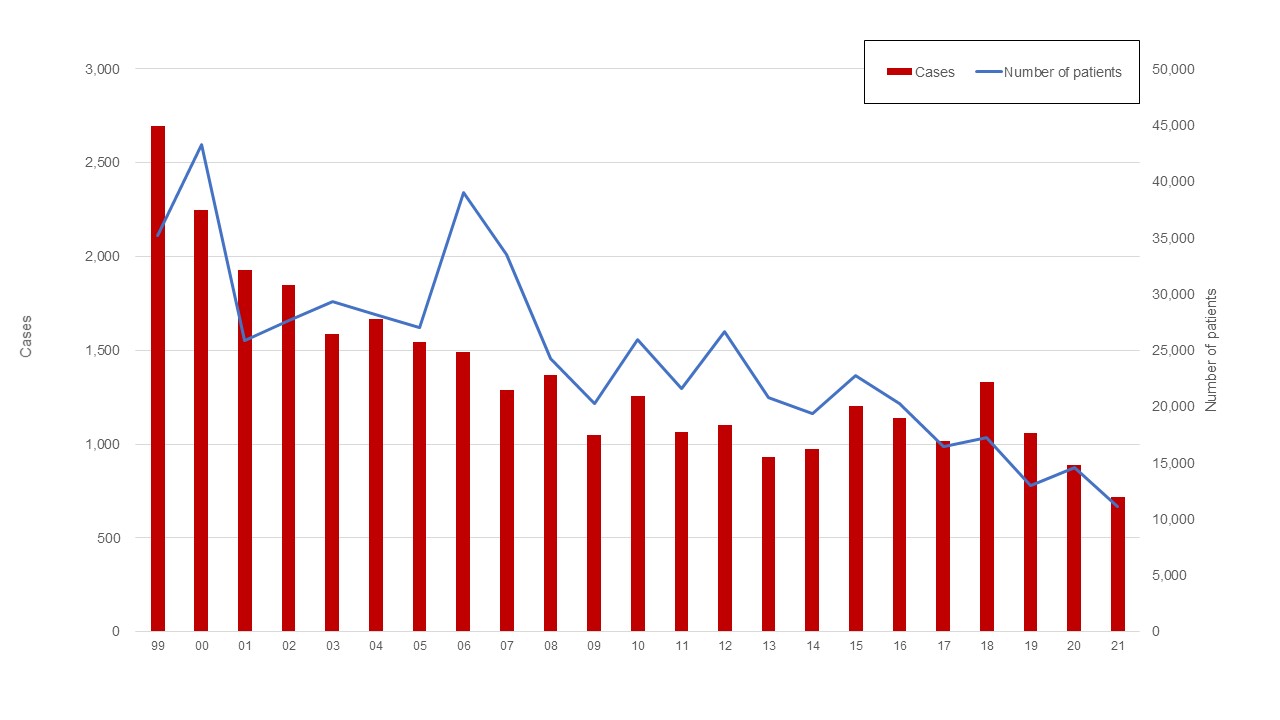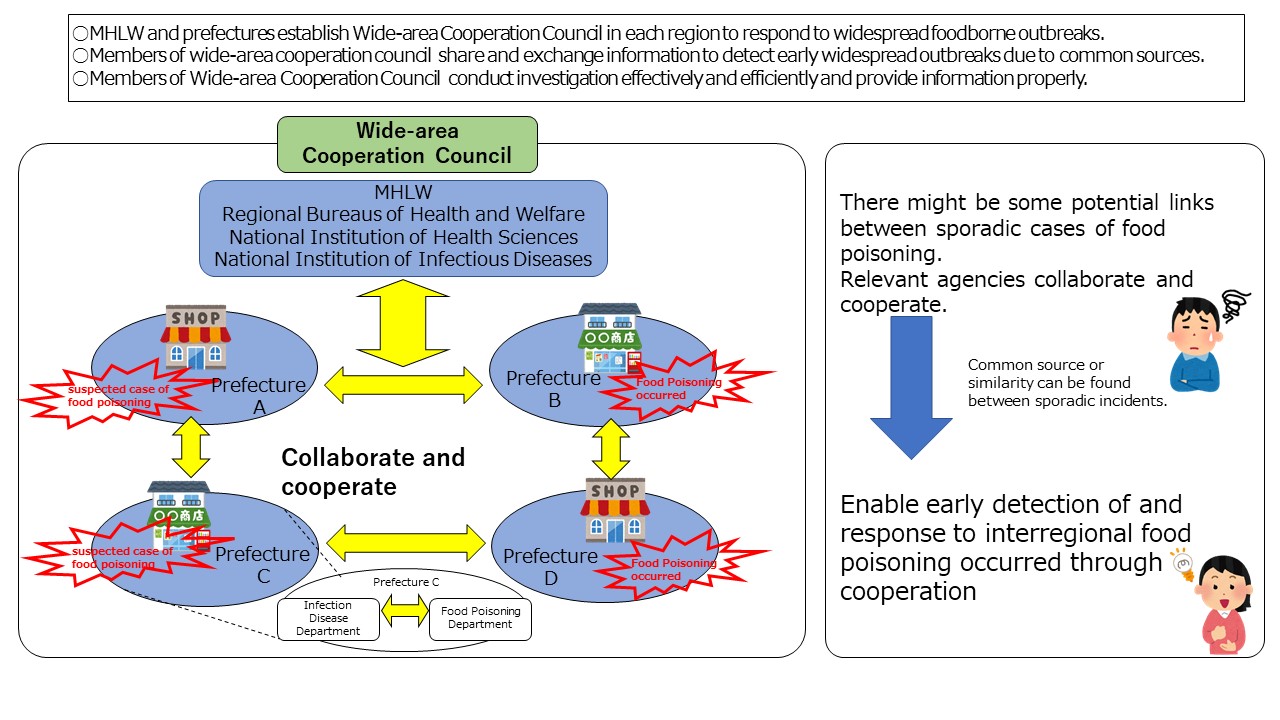健康・医療Food Poisoning
The MHLW provides consumers and business operators with information based on the latest findings to help them deepen understanding about food hygiene and safety to ensure the prevention of food poisoning outbreaks. In case of an outbreak, the MHLW will work together with relevant local governments to identify the cause and to try to stop the outbreaks in the early stages.
Trend of Food Poisoning Prevalence

Reinforcement of wide-area food poisoning incident response
Following the Enterohemorrhagic E. coli infection/food poisoning that broke out across the Kanto Region in 2017 as a background, the MHLW amended the Food Sanitation Act as below. In order to prevent occurrence and expansion of interregional food poisoning cases, the related parties’ obligation to cooperate is explicitly stipulated, and as a framework of such cooperation, the MHLW may establish a council for wide-area cooperation which is composed of relevant parties of the national and local governments etc. When an urgent response is required, the MHLW may utilize the council to address interregional food poisoning cases.
By sharing information among the national and local governments at the councils, the MHLW seek to detect interregional food poisoning cases at an early stage, and to conduct effective investigation to determine the cause, etc. In addition, the MHLW develop requirement of food hygiene control based on HACCP principles, which is highly effective to prevent food poisoning and aligned with the international standards.




